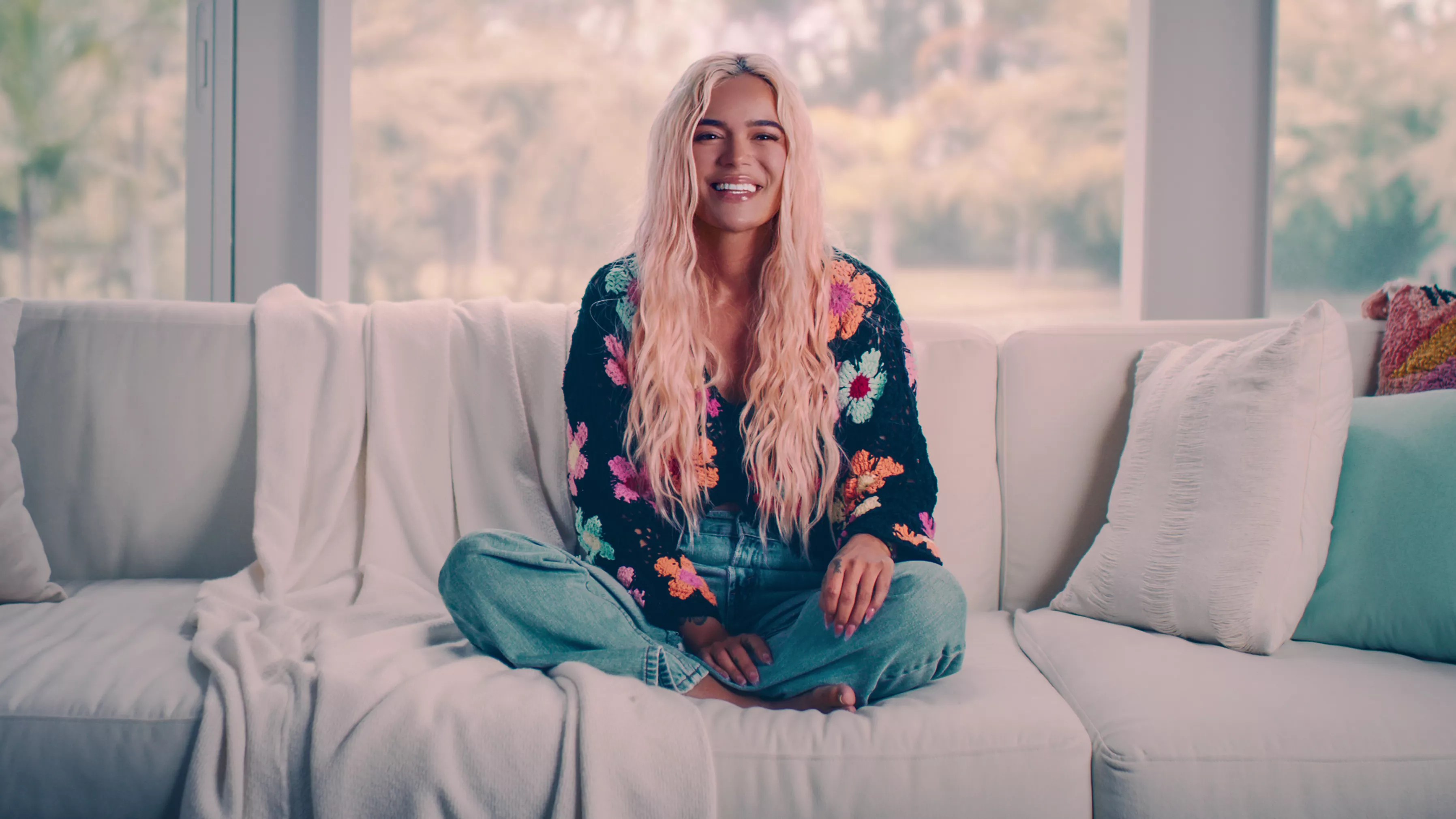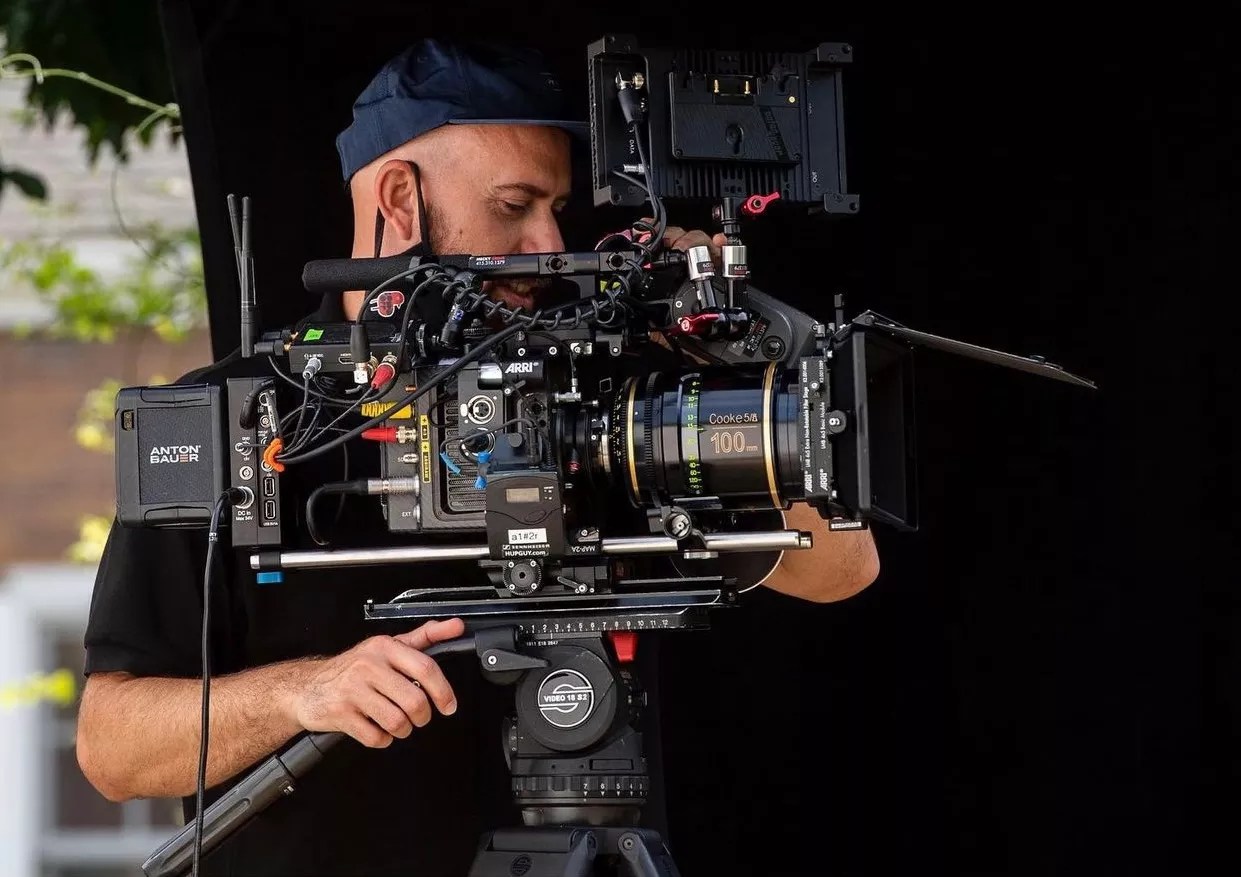
Netflix photo

Audio By Carbonatix
Netflix recently released a documentary film following Colombian pop star Karol G‘s journey planning, rehearsing, and executing a sold-out global stadium tour of her latest album, Mañana Será Bonito (Tomorrow Will Be Beautiful). Mañana Será Bonito was a Latina artist’s highest-grossing tour of all time and the third highest-grossing by any Latin act.
Miami-based cinematographer Mecky Creus was there throughout it all, capturing everything it took for Karol to make this feat a reality. Creus spoke with New Times about his experience working with a powerhouse group of Latinas, how trust and flexibility are paramount in capturing intimate moments on screen, and how his upbringing influenced his knack for capturing talent in their element.
Mecky met Cristina Costantini, the director and producer of Karol G: Tomorrow Was Beautiful, while working as the cinematographer on the HBO Max docuseries Menudo: Forever Young. Costantini was an executive producer on the project, and she and Creus immediately connected as collaborators. When Creus got the call that Costantini was directing a documentary on Karol G and wanted him onboard, “I was like yeah, I’m in, I’ll drop everything,” recalls Creus.
Creus and fellow cinematographer Luisa Conlon were behind all the captivating, powerful, and intimate footage in Tomorrow Was Beautiful. For Creus, working with a powerhouse crew of women like Costantini, Conlon, and Producer Mariem Perez on a project that showcases a Latina icon was “a true gift.”
He says, “It meant a lot to be a part of a project that means so much to Latinas. From where I started my career in reggaeton to the landscape now, it gives me so much hope, and it’s just the beginning. It’s a true gift to witness and support this groundbreaking movement.”
In the documentary, Karol G stresses the difficulty of appearing in a male-dominated industry and genre. Historically, reggaeton has created male stars who’ve enjoyed global reach with their infectious beats and danceable “dembow” rhythms. Still, the genre has often been criticized for its misogynistic lyrics and male-centered narratives. However, female reggaetoneras are taking center stage and redefining the genre. Chief among these has been Karol G.
Karol allows viewers into the day-to-day life of a global pop star in an engrossing patchwork of intimate interviews, on-the-road antics, rehearsal behind the scenes, fan messages, and grand-scale concert footage. A lot of it is as thrilling as it seems, but some isn’t as sweet. In the film, Karol vulnerably reveals chronic health struggles, a crippling commitment to perfectionism, and a sexual harassment event from her childhood that almost made her quit music forever.
For Creus, it was all about building trust with Karol and the team so that he could honestly capture all the complexities that were being offered to him.
“You have to build trust, and quickly. So you can create a space where the artist can feel comfortable and authentic, even with a camera in their face.”
Luckily, Creus has had extensive experience filming big acts, from Juanes to Nicky Jam and Marc Anthony, throughout various projects. He’s learned the importance of maintaining trust among the team, along with flexibility and an instinct for magical moments as they happen.
“You have to be ready for the moment. On a technical level, you have to be fast. Flexible, ready to adapt to lighting and framing – be on the fly. While not being in the talent’s face or in the way, but also without compromising quality. Emotionally, it trained me to read the energy in the room.”
Conlon and Creus became completely immersed in all the tour elements, impressively shifting from quiet moments to a larger-than-life stadium concert in full swing.
“Each night [of the tour] she’s making history. Luisa and I were responsible for capturing those defining moments. The process just demands quick thinking and total immersion in the moment. Things don’t happen twice. You get it or you don’t get it.”
Creus feels comfortable with this cinema verité approach partly because he’s been doing it since he was a kid. In the late 1990s, Creus was introduced to reggaeton as a teenage skater in Puerto Rico when he got to shoot skate footage for the skate publication In the House Magazine. Mix CDs full of underground music, not yet labeled as reggaeton, came with the magazine and became the “soundtrack of my youth.”

Miami Cinematographer Mecky Creus
Netflix photo
Then, through a skate friend who worked in television, Ozzie Forbes, Creus got the chance to work on a show that showcased underground music acts called Frente Sónico. There, he was exposed to the now-legends of reggaeton music as they were just coming up, artists like Daddy Yankee and Wisin y Yandel, to name a few.
“Reggaeton felt like, you know, it’s our music, it’s raw, it’s real. It’s our culture.”
Having an intimate understanding of where the genre started has allowed Creus to appreciate its evolution and support the newer artists making a name for themselves. “And looking at all the women in the game now. It wasn’t like that when the genre started, it’s been so cool to see.”
From studying film at the Academy of Art University, San Francisco, to working on high-profile projects like Tomorrow Was Beautiful, Creus has kept the agile, versatile, open-hearted spirit of his roots in the underground scene.
He’s learned to “be open, have very little to zero expectations, and just trust and follow the process.” Most recently, Creus and his partner, producer Adrienne Hall, have co-directed a short film highlighting Cuban American artist Edel Rodriguez called Edel Rodriguez: Freedom is a Verb. Creus also lensed the project, which premiered at the 2024 DOC NYC film festival.

Miami-based cinematographer Mecky Creus is behind the footage in Tomorrow Was Beautiful.
Netflix photo
Creus has found Miami to be a great home base, with ties to reggaeton. Being able to switch to his native tongue and speak to the subjects in their native tongue has allowed for more trust and vulnerability on his projects. “I just want people to get comfortable. And then they could be who they are because I wanna get their stories.”
The new documentary showcased Karol G’s comfort, vulnerability, and authenticity. Creus’ sensibility certainly contributed to this atmosphere. With several projects in the works, Creus will continue to foster an ethos of dynamic authenticity in his storytelling.